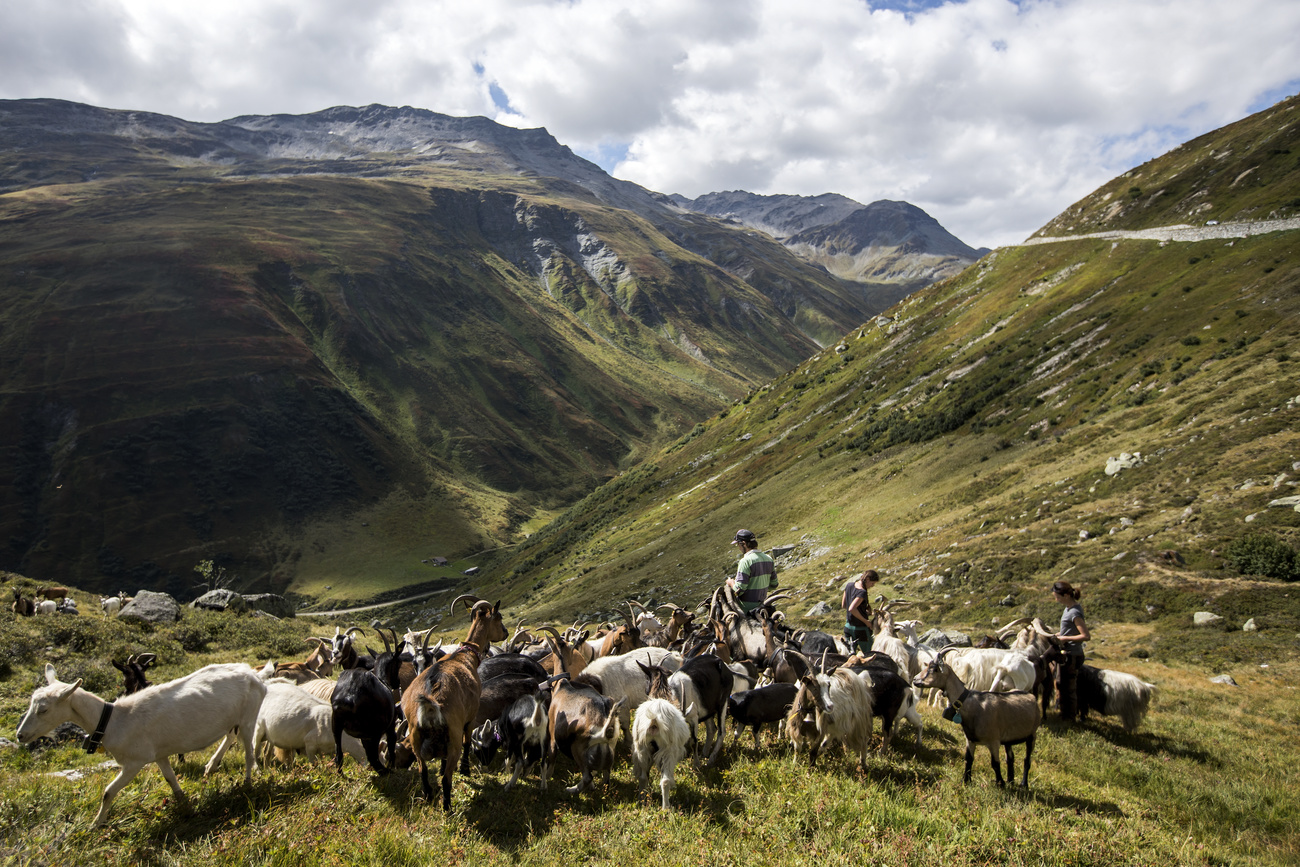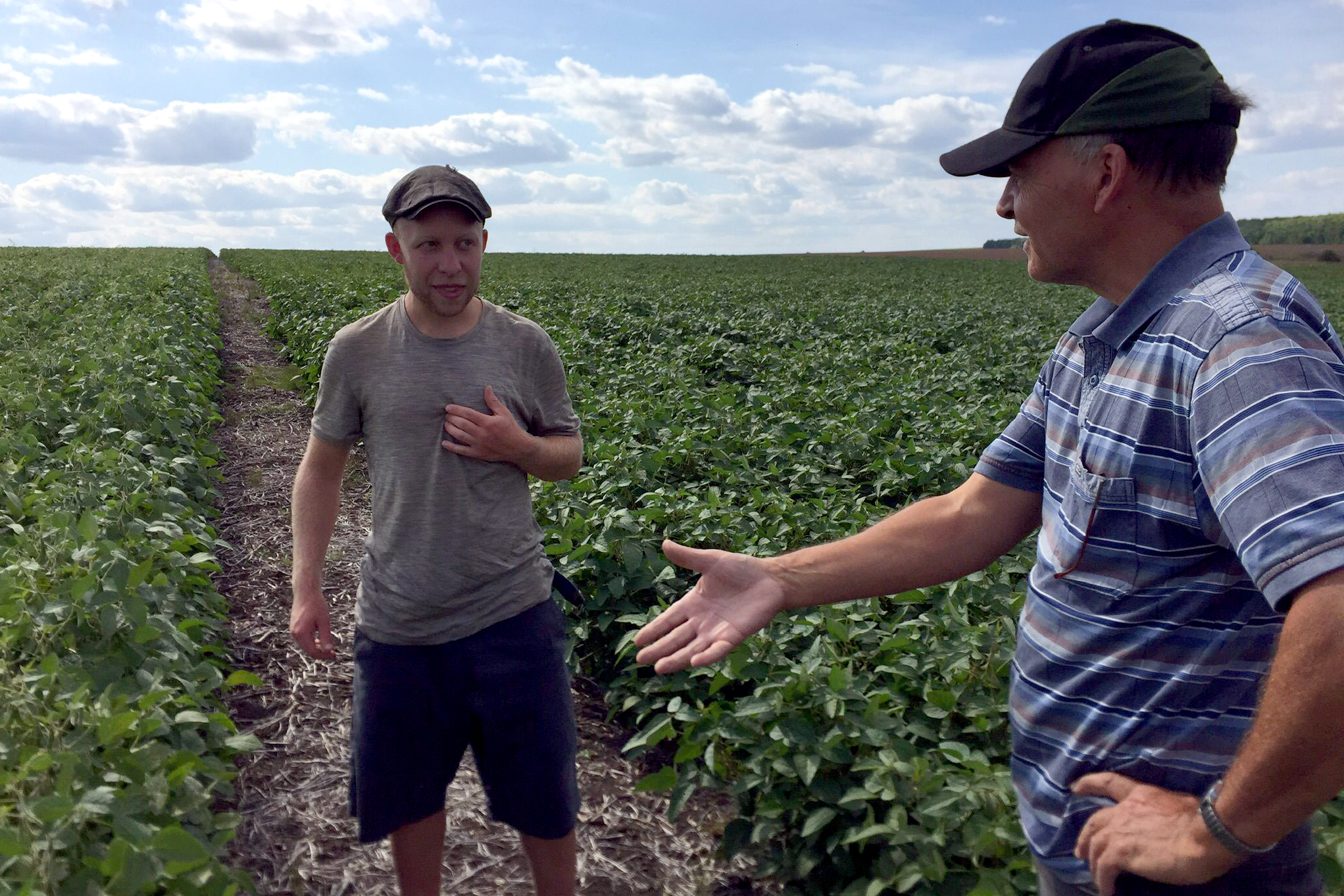

Switzerland Today
Greetings from Bern!
Here are the latest news and stories from Switzerland on Monday –240 years to the day after Swiss servant Anna Göldi became the last woman in Europe to be executed for witchcraft.

In the news: Genetic tests have confirmed that an animal killed in March in the Rhine Valley in eastern Switzerland (pictured) was the offspring of a wolf and a dog.
- It is the first time a wolf-dog hybrid has been shot in Switzerland. At the end of January a suspected hybrid was shot in western Switzerland, but genetic analysis showed it was a pure wolf. The authorities say it’s important to shoot hybrid animals so they can’t reproduce, thus protecting species.
- Should people pay more to fly? Most Swiss think so. Almost three-quarters of respondents to a survey are in favour of increasing the price of airline tickets for climate reasons: 42% back a levy of CHF30 ($30.40) for short-haul flights and CHF120 for long-haul flights; 50% agreed with higher charges.
- Swiss tennis star Roger Federer has dropped to 68th in the latest ATP rankingsExternal link, released today, but he still remains the highest-ranked Swiss. What’s more, he has confirmed that, despite turning 41 in August, he “definitely” intends to return to top-level tennis in 2023.

Hanspeter Rikli (pictured, right) has lived in Russia for over 25 years, running a farm near the Ukrainian border. He tells us what life is like as a Swiss Abroad in Russia and why he doesn’t think much of Western sanctions, imposed following Russia’s invasion of its neighbour.
Born in Oberaargau, northern Switzerland, Rikli lives and works in Voronezh, about 300 kilometres east of the Ukrainian-Russian border, with his Russian wife and 13-year-old daughter. His farm, on which he grows soya beans, wheat and sunflowers, would cover 1,400 football pitches – a medium-sized farm by Russian standards. He says the family hasn’t noticed much of the war. “Life here is like before,” Rikli, 66, says on the phone. The only thing they hear is the planes taking off and landing at the nearby military airfield.
The first time he was in Moscow was in 1991. “I liked it from the start and felt at home in Russia,” he says. From 1993 he worked for the Swiss Agency for Development and Cooperation (SDC) and later started his own farming business. He struggled as a potato farmer and almost quit in 2013, but then came the sanctions in connection with the Crimean crisis in 2015 and the collapse of the rouble and oil prices. “Suddenly agriculture in Russia became very profitable again,” he says.
Until the Covid pandemic he also gave agricultural tours in Russia, which are popular holidays for farmers from Switzerland and Germany. Rikli says he has remained Swiss at heart, even though he has lived “completely among Russians” for decades. He has immersed himself in Russian culture and calls himself half-Russian. Emotionally, he says he’s had to detach himself from Switzerland, otherwise it wouldn’t have been possible. Contact with old friends in Switzerland has diminished over the years – “that’s the biggest loss.”
He says he tends to see things from a Russian perspective and doesn’t think much of the Western coverage of the war and Ukraine. He describes Putin as a typical Russian and one of the few politicians in the country who has not lost touch with the people. Nevertheless, he says war is “terrible” and points out that he refused military service in Switzerland. Rikli claims he and his family are not affected by the Western sanctions. “It’s a Western illusion that the sanctions will achieve anything,” he says. He believes there’s enough petrol and basic foodstuffs in his region. “At the moment, the biggest loser in the family is our daughter, because the McDonald’s has closed! But they’ve already found a replacement.”
More

In compliance with the JTI standards
More: SWI swissinfo.ch certified by the Journalism Trust Initiative



























